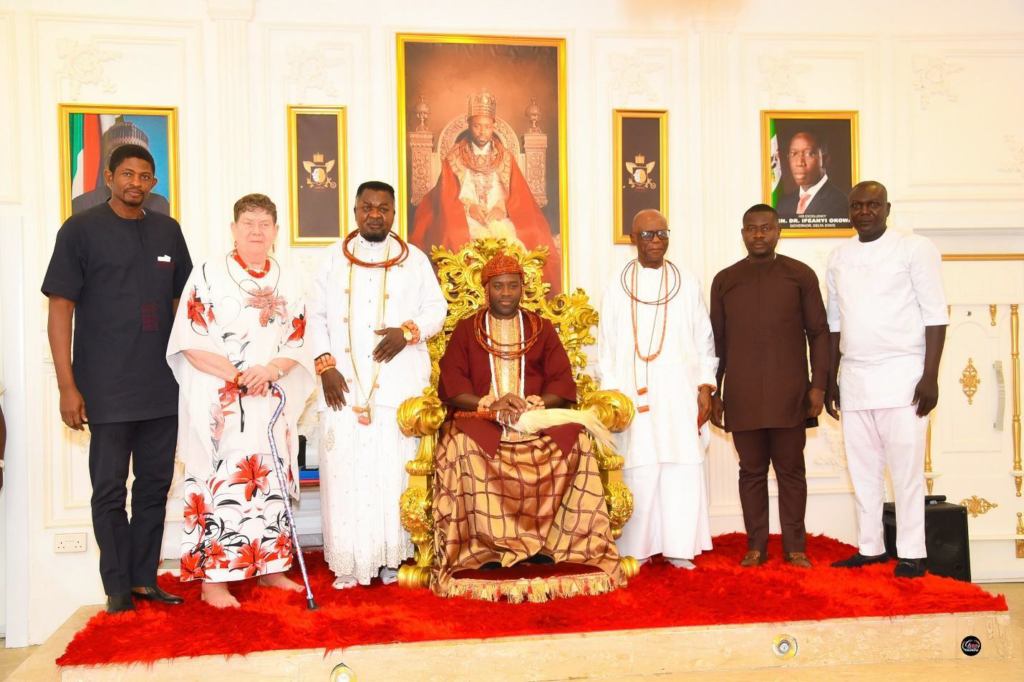The Role of Traditional Rulers in Peace and Development
Before Nigeria was colonized by a succession of foreign powers, it was governed by traditional rulers, known as Emirs in the northern part of the country, Obas in the west, Obis in the east, and unique titles in various other parts. Examples include the Olu of Warri and the Orodje of Okpe in the current Delta State; the Etsu Nupe in current Niger State, the Esu Karu in Nasarawa State, etc. These traditional rulers governed their kingdoms effectively.
However, the British colonialists introduced another form of governance, with elected officials, Western style law with courts, police forces, etc. Sometimes these two forms of government have coexisted amiably. Sometimes they are in conflict.
Traditional rulers have been a key part of our work over the past 30 years. AAPW has worked in specific community conflicts since 1992. Our National Corps of Mediators, which was formed with General (later President) Obasanjo in 1992 consisted of respectable and respected members of civil society who were well placed and also trained to intervene in their own community conflicts.
One unique pair of volunteer mediators worked in the Ife/Modakeke conflict in Osun State. One person was HRH Eze Okwuaka of Imo State. He was a traditional ruler and the former Consul General at the Nigerian Embassy in New York. The Ooni of Ife, who was a very prestigious king, respected Eze because he was a fellow traditional ruler. The other mediator was Amb BA Clark, the former Nigerian ambassador to the United Nations. The Ooni and Amb Clark had been friends as young men. Therefore, this pair of mediators was a good fit, as it was acceptable to the Ooni and also to the Ogunsuwa of Modekeke and his people. The mediators volunteered their time and energy. We simply paid for Eze’s bus fare from Owerri, and then we all went from Lagos to Ife/Modakeke in the AAPW bus.
The mediation team first employed shuttle mediation, going between the two sides to identify areas of common ground. Eventually we identified the establishment of a development area for Modakeke as being one of the possible ways of establishing at least a temporary peace. This had been promised as part of a reconciliation efforts undertaken by President Obasanjo after his meetings with both sides, but not yet implemented by the Osun State governor. I mentioned this to the President during a visit to Abuja and he immediately picked up the phone and instructed the governor to set up the development area. This was done with a few weeks and tensions cooled. The participation of two respectable citizens helped to identify the issues and find a mutually acceptable solution.
The King of Wukari played an important role in our peace process between the Tiv and the Jukun in Wukari, Taraba State. In a similar fashion the Esu Karu was the patron of all of our work in Karu Local Government in Nasarawa State. The Obol Lopon of Ugep in Cross River State blessed our early work there, and we were pleased when his successor participated in the state level town hall meeting presentation of the research on insecurity and also attended the 15th Niger Delta Dialogue to discuss the role of traditional rulers ensuring security in their kingdoms.
Traditional Rulers in the Niger Delta

When we were organizing the initial meeting on the Niger Delta crisis in June 2016, we knew that we needed a respectable leader who would attract participation of key stakeholders and also have the gravitas to speak truth to power. We invited HRM King Alfred Diete Spiff to chair the occasion. Spiff is not only the king of the Brass kingdom and former chairman of the Bayelsa State Traditional Rulers Council, but also a former governor of the old Rivers State who was recognized for his active achievements while in office and also a retired military officer. These qualifications proved very appropriate in chairing the first NDD and also in leading the team to President Buhari to present the report on the issues raised in the Uyo meeting. The President’s eyes lit up when he saw a military colleague whom he had known decades before in Port Harcourt, and whom he could respect as a fellow government official. King Spiff is very tall, straight-backed with military discipline and a commanding presence. So, when a government official from Abuja came to our meeting in Port Harcourt a few months later and talked about a Niger Delta conference being organized in Abuja, King Spiff, in his deep voice, demanded to know why such a meeting was being held in Abuja and not the Niger Delta. He stated that no one from the Niger Delta would attend such a meeting outside of the region. And the meeting was cancelled.
His Eminence Ediden Ekpo Okon Abosi Otu (V) Obong of Calabar and His Chiefs
HRM King Dandeson Jaja of Opobo in Rivers State has also been a very active member of the Niger Delta Dialogue and is the Chairman of the Rivers State Traditional Rulers Council. King Jaja is passionate about the welfare of people of the region, especially on matters of drugs and insecurity. Another very supportive traditional ruler is His Majesty, King Amb Leslie Nyebuchi Eke JP, whom we affectionately call Eze Gbakagbaka. He has participated in many of our events in Rivers State. HRM Bubraye Dakolo, Agada IV, now the chairman of the Bayelsa Traditional Rulers Council, is an articulate and active younger king. A truly unusual traditional ruler is the only woman King in Delta State, HRM Obi Martha Dunkwu, the Omu of Anioma Kingdom. She is a motivation and role model for not only women, but also young Nigerians wanting to improve the country.

EU Ambassador Ketil Karlsen speaking, with HE Idongesit Nkanga,
HRM King Dandeson Jaja, and HRM King Alfred Diete Spiff
It has been a joy working with such dedicated and hardworking traditional rulers over the years.
HRM. King Dandeson Jaja of Opoba and His Eminence Edidon, Obong of Calabar
Uncertainty about the role of Traditional Rulers
Participants at the 8th meeting of the Niger Delta Dialogue
In precolonial times, traditional rulers were clearly in charge of the peace and development in their realms. Now their roles are less clear, as many of their responsibilities have been usurped by other authorities. Often there is a gap, as discussed in the 15th Niger Delta Dialogue report.
Hon. Dr. Charity Ido, the chairman of the Policy Advocacy Committee in Akwa Ibom State,
is also a medical doctor and a member of the state House of Assembly. The Akwa Ibom PAC was extremely active in taking the NDD insecurity report to the various corners of the state, and extracting suggestions for implementation from the various stakeholders there. She gave a precise discussion of the role of traditional rulers in her powerpoint presentation “Rethinking Synergy between Traditional Rulers, Security Agencies, Government Officials and Civil Society in Returning Security to the Niger Delta” (see her presentation here). Among her key points are the fact that traditional rulers are on the ground, know their people and can identify suspicious outsiders, have the respect and sway over their people but are often not consulted or even informed of security actions in their kingdoms. Many times, the traditional rulers have expressed the desire to play a more active role in ensuring the security of their kingdoms but are excluded from Western style government processes.
Chief Nengi James
HRM Bubraye Dakolo, Agada (IV)
HRM Obol Ofem-Ubanna, Paramountt ruler of Yakima
HRM DR. E.O. Efeizomor OON, Obi of Owa, HRM Pere Kalanama, Pere of Akugbenemein K.ingdom, HRM Onajite, Ovie of Ogor Kingdo10, listening to Ambassador Joe Kesbi.
Although there are certainly some dubious traditional rulers, the vast majority have the desire and capacity to play a larger role in modern Nigeria. We encourage further discussion and expansion of the role of traditional rulers in bringing peace and development to their kingdoms.
Rear Admiral Nicholas Bakpo (Rtd.) with HRM Alabo Prof. Dagogo Fubara, HRM King Dr. Amb. Sir Leslie Nyebuchi Eke JP, Chief Dr. Judith Burdin Asuni, HRM Ba-Idem Suani G.B, Hon. Ken Robinson
HRM Captain Joseph I. Timiyan Agbonu (JP) Torububor 1, the Ebenanawei of Ogulagha Kingdom
Chief Betty Igbeyi, HH Anabs Sara Igbe with HRM Obi Martha Dunkwu, Omu of Anioma (Standing)
Chief Dr. Judith Burdin Asuni, Rear Admiral Nicholas Bakpo (Rtd), HRM Eze Gbakagbaka, HE Ketil Karisen,
Head of EU Delegation (Standing) & Osaro Odemwingie (EU Delegation)



